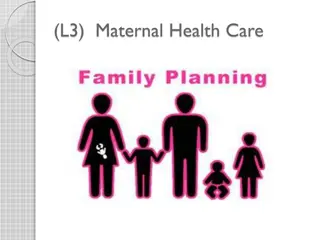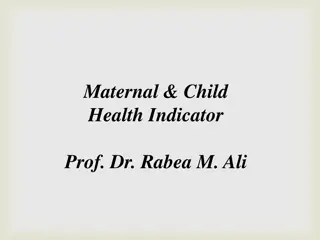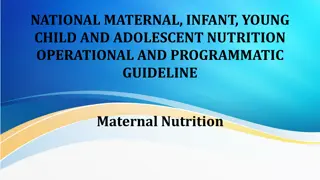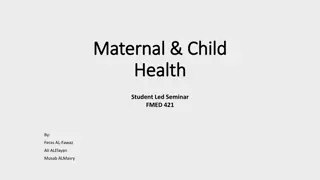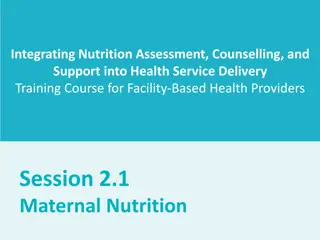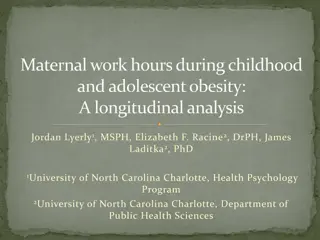Understanding the Role and Benefits of a Doula in Maternal Care
A doula is a trained professional who offers continuous physical, emotional, and informational support to individuals before, during, and after childbirth. They play various roles such as providing prenatal education, advocacy, labor support, immediate postpartum care, and lactation assistance. Continuous support from a doula has been shown to improve outcomes for both the birthing person and baby. Discover the valuable contributions doulas make to maternal and child health.
Download Presentation

Please find below an Image/Link to download the presentation.
The content on the website is provided AS IS for your information and personal use only. It may not be sold, licensed, or shared on other websites without obtaining consent from the author. Download presentation by click this link. If you encounter any issues during the download, it is possible that the publisher has removed the file from their server.
E N D
Presentation Transcript
The Doula Danielle Little, MAEd Maternal Child Health Professional Doula Childbirth Educator Lactation Counselor
AGENDA Define the term doula Discuss the role of a birth doula Discuss the benefits of continuous labor support Discuss the scope of the postpartum doula 2
What is a Doula? What is a Doula? A trained professional who provides continuous physical, emotional and informational support to their client before, during and shortly after childbirth DONA.org 4
Role of the Birth Doula Role of the Birth Doula Prenatal Prenatal Information & Advocacy Labor and Birth Labor and Birth Physical Support Immediate Postpartum Immediate Postpartum Lactation Support Provide Resources Informational Support Newborn Care Communication Continuity of Care Physical and Emotional Support 5
Prenatal Prenatal Education & Advocacy Birthing Process Labor and Birth Positions Lactation Facilitate Effective Communication
Labor and Birth Labor and Birth
Labor and Birth Labor and Birth
Continuous support in labor may improve a number of outcomes for both Continuous support in labor may improve a number of outcomes for both [the birthing person] birthing person] and baby, and no adverse outcomes have been identified. and baby, and no adverse outcomes have been identified. Continuous support from a person who is present solely to provide support, is not Continuous support from a person who is present solely to provide support, is not a member of the a member of the [person s] [person s] own network, is experienced in providing labor own network, is experienced in providing labor support, and has at least a modest amount of training (such as a doula), appears support, and has at least a modest amount of training (such as a doula), appears beneficial. beneficial. [the Cochrane Database Systematic Review, 2017
Benefits of a Doula Benefits of a Doula Physical Support Physical Support Emotional Support Emotional Support Clinical Benefits Clinical Benefits Increased movement Decreased anxiety Reduced use of Pitocin Improved relaxation Increased confidence Fewer requests for pain meds Comfort and reassurance Boosted self esteem Less likely to need forceps and vacuum Lactation support Improved postpartum mental health Greater satisfaction with the overall birth experience Family bonding and support for partners and siblings More positive long-term memories Better APGAR scores for baby* Reduced likelihood of cesarean birth Hodnett ED. Pain and women s satisfaction with the experience of childbirth: a systematic review. Am J Obstet Gynecol 2002; 186(5) S160-72. Hodnett ED, Gates S, Hofmeyr G J, Sakala C, Weston J. Continuous support for women during childbirth [PDF]. Cochrane Database Syst Rev 2011, Issue 2
Role of a Postpartum Role of a Postpartum Doula Doula Nurture Educate Assist Reassure
THANK YOU Danielle Little, MAEd Danielle.Little@trianglehealtheducators.org The Doula 13





